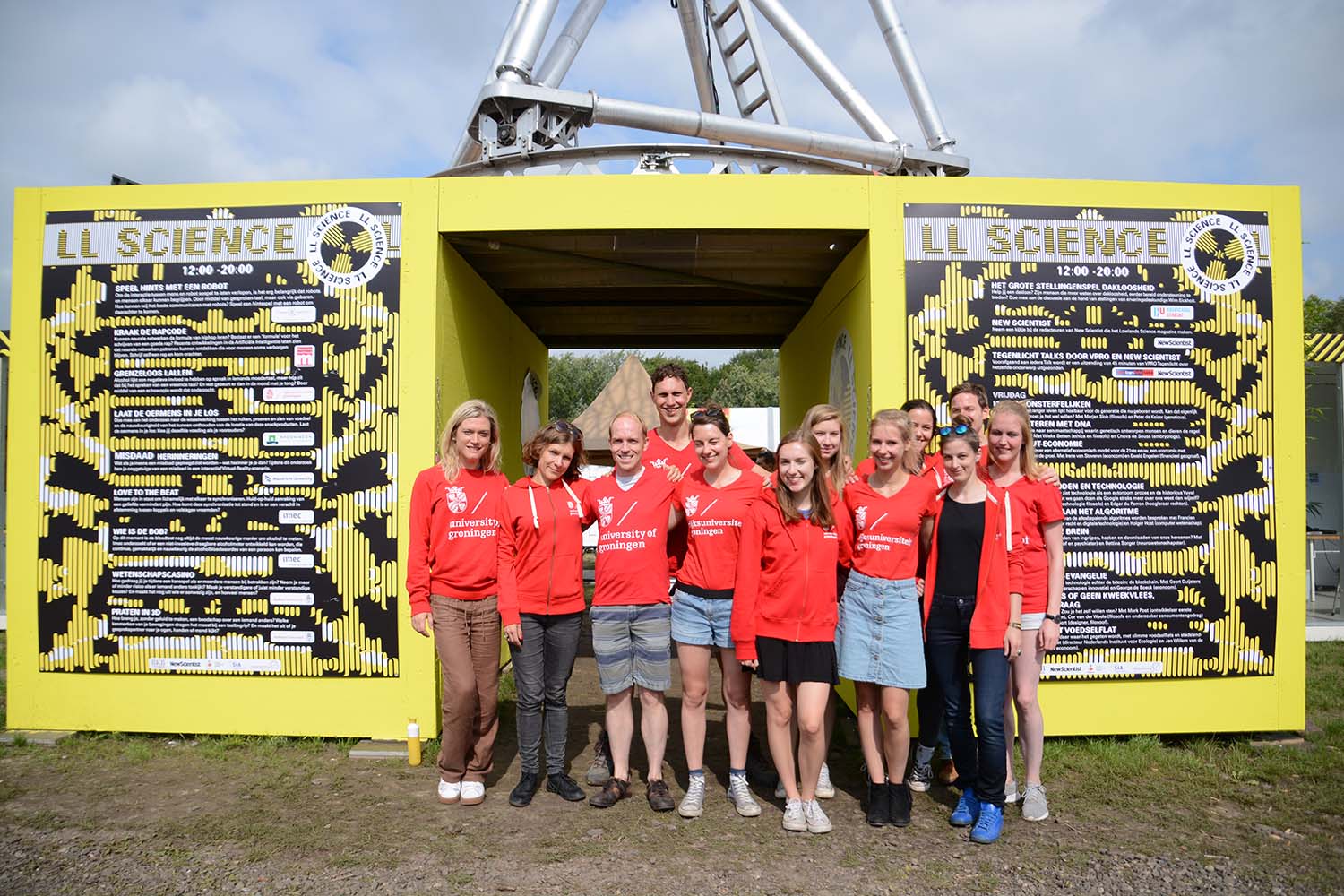Front-row research at Lowlands
Speech researcher Martijn Wieling is going to Lowlands again this year. Why? ‘It’s one of the most fun things you can do as an academic.’ Conducting research in a festival atmosphere, surrounded by lots of people and loud music is really hard work, but it’s all worth it for Wieling and his team. The research, entitled ‘Hoe ontstaat en verandert een taal?’ (How do languages emerge and change?), has been selected for Lowlands Science 2019 and is conducted in collaboration with UG colleague Gregory Mills.
Martijn Wieling thinks the front-row pass he was given when he visited Lowlands last year was probably a mistake. He had his camera on him and they must have thought he was a photographer. So he got to take a couple of good pictures. However, this was not the reason why Wieling, Associate Professor of Information Science and Professor by special appointment of Low Saxon / Groningen Language and Culture, was there.

Jabber with abandon
The real question is: why does a man with a passion for computers and language visit a music festival? The answer is simple: to collect data. That’s what he did last year, in his research project ‘Grenzeloos lallen’ [Jabber with abandon] that studied the effects of alcohol on speech. Subjects first had their blood alcohol content measured and were then asked to pronounce several words and sentences in Dutch and English. Wieling discovered in this study that while the subjects’ Dutch pronunciation deteriorated as they consumed more alcohol, their English pronunciation skills did not change.
Tongue movements
Martijn Wieling and Gregory Mills have now developed an experiment that looks a little bit like the popular game Guitar Hero. It is played in pairs, whereby one subject sees the melody and can only play the notes by pronouncing various different sounds. Wieling and Mills aim to answer two questions: 1) How quickly does a new language emerge when speakers are only allowed to use a limited number of sounds to communicate with each other? And 2) does the pronunciation of these sounds change in the course of the communication under the influence of the other speaker? The experiment will not just focus on the subjects’ pronunciation; tongue movements will also be registered with an ultrasound device.
By the dozens
Gathering data at a festival with 60,000 visitors is quite different from working in a lab. For one thing, finding test subjects is a whole lot easier. ‘They simply come to you by the dozens. They are very eager to participate in the study.’ There are, however, disadvantages too. Last year the research lab was located near a large stage. Every time a band was playing, the floor vibrated and it was sometimes difficult to hear each other. It’s also very intensive: the team, comprising twelve members, will be working non-stop from 12 noon until 8 p.m., testing almost 300 subjects in three days. ‘And of course you also want to see a few bands in the evenings. Last year I got to see The Wombats, Dua Lipa and James Bay, to name a few.’
Festival
Fortunately the team can camp at the crew campsite, which is a bit quieter than the visitors’ one. Doing research at Lowlands means gathering a lot of data in a fun environment in very little time – an amazing experience. Wieling applied for a front-row pass again this year. He is not sure yet whether he will get it, but he’ll definitely bring his camera.
Text: Merel Weijer. This article was originally published in Alumni Magazine 'Broerstraat 5'.More news
-
15 September 2025
Successful visit to the UG by Rector of Institut Teknologi Bandung
